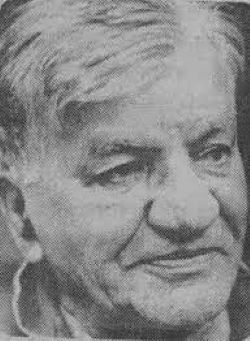That evening, three or four Indians were standing around talking about helping the Jews.
Sahai said mischievously, ‘I think Chakradhar and Madnani should be excused from any collection we make.’
Michael put on his best innocent look and asked, ‘Why? If we collect, we should all contribute.’
Chatterjee took up the baton of badinage. ‘Let’s leave them out. They’re trying to do what they can in their individual capacity.’
Jadhav said, ‘Stop it. Let me make a list. Mandal, you first. How much should I put you down for?’
Yogeshwar Mandal was standing by the railing, looking out to sea. ‘I have no wish to help traitors,’ he said, sharply.
Everyone was startled. Sahai had taken out his fountain pen and he now recapped it and said ironically: ‘You were in Germany for only two years. Was that all the time it took to turn you into a Nazi?’
Mandal replied, ‘You don’t have to be a Nazi to hate traitors.’
Michael shook his head, dismissing Mandal as beyond all help. Chatterjee laughed and said, ‘You seem to have studied Mein Kampf rather well.’
‘It isn’t as if only Hitler says that the Jews destroyed Germany. All the Germans say it.’
‘And how do they say that the Jews managed to do that?’
‘What didn’t they do?’ Mandal demanded. ‘In the last War, it was the Jews who slit Germany’s throat. They sold German war secrets to the enemies. They forced war debt on to the world to keep the War going and grew rich on the interest. It was in Jewish factories that the bombs that rained down on Germany were made. The uniforms they supplied the German army? The boots they made? Stuffed with the bark of trees. They supplied third- rate food grain, unfit for human consumption, to the army. Even the tobacco was sawdust. That their greed was hollowing Germany out meant nothing to them.’
Shinde said quietly: ‘All this can’t be attributed to the Jews alone. The greed for profit is at the basis of all society. Why do you assume that this happened only in the case of Germany? The same things happened in England too. At the time of War, American companies were given many contracts to supply war ordnance. Many of those companies had German capital invested in them. You just spread a rumour that will help you secure the contract. What you said about the food grain? That would have happened in England too. And their uniforms and shoes would have been just as bad.’
Michael joined the fray: ‘Why talk about England and France and Germany? What happened in Hindustan? When the Non- Cooperation Movement was on, weren’t people’s sentiments exploited? Mill cloth was sold as khadi, Japanese cloth was labelled as swadeshi. Wasn’t that dirty business too? Are you going to exterminate all these people?’
Mandal was silent but his eyes were red. In a firm voice, he said, ‘We certainly will. We will remember all those who put their personal agendas before the national interest. And we will take revenge.’
Michael asked irritably: ‘And how many Hindustanis have you met who put nation before self ?’
Mandal’s tone was equally irritable: ‘I know that. I can tell you who sacrifices the good of the nation for selfish motives.’ Mannan sought to add fuel to the flames. ‘Speak out then if you have the courage.’
‘What need for courage? There are enough greedy people among us who claim greater rights because of their minority status. They don’t mind if it means that independence is delayed just so long as they get what they want. That’s the sum of their national philosophy.’
Mannan interrupted vehemently: ‘So you’re suggesting they should be treated as the Jews are treated in Nazi Germany?’
‘They should know that if they don’t come to their senses, they will meet with the same fate, make no mistake,’ said Mandal.
Michael could not take Mandal’s jibes about minorities lightly. ‘Do you know where that will end?’ he asked.
‘I’ll tell you,’ said Mannan. ‘Palestine once belonged to the Jews. Today it belongs to the Arabs. Hindustan also could end up with a differentname.Today the Congress is tormenting the Parsis, the Christians and Muslims so much, it might happen in the next generation.’
Shinde was red with rage. He said to Mannan: ‘Perhaps that name might even be changed. But make no mistake, those who seek to change its name for another, will also die.’
Vishwanath Chintamani Bedekar (1906-1998), who used Vishram Bedekar as his professional name, was a prominent and immensely popular Marathi writer, playwright and film-maker. His first and only novel, Ranaangan, was published in 1939 and created a sensation in the literary circles of the time.Among the several plays he wrote are Bramhakumari, Naro Va Kunjaro Va, Vaje Paul Apule and Tilak ani Agarkar. In 1984, he published his autobiography, Ek Zhaad Ani Don Pakshi (A Tree and Two Birds), which won the a Sahitya Akademi Award the following year.A trained cinematographer, Bedekar also directed over fifteen films in Hindi and Marathi.


Subscribe to our newsletter To Recieve Updates
Join our newsletter to receive updates